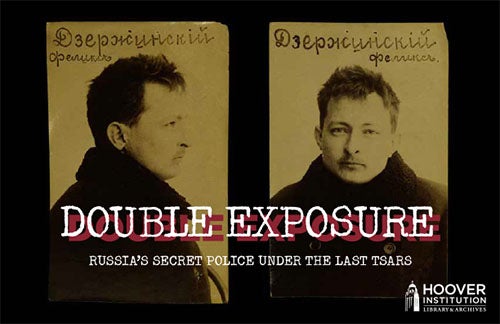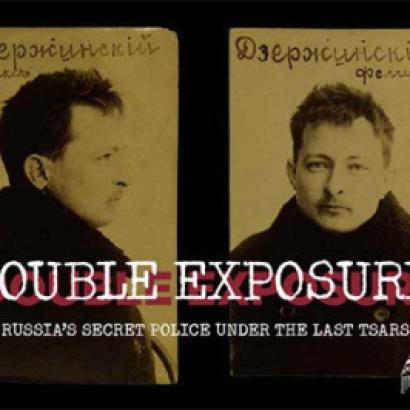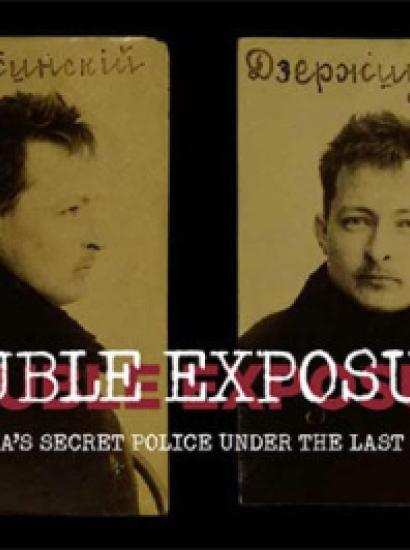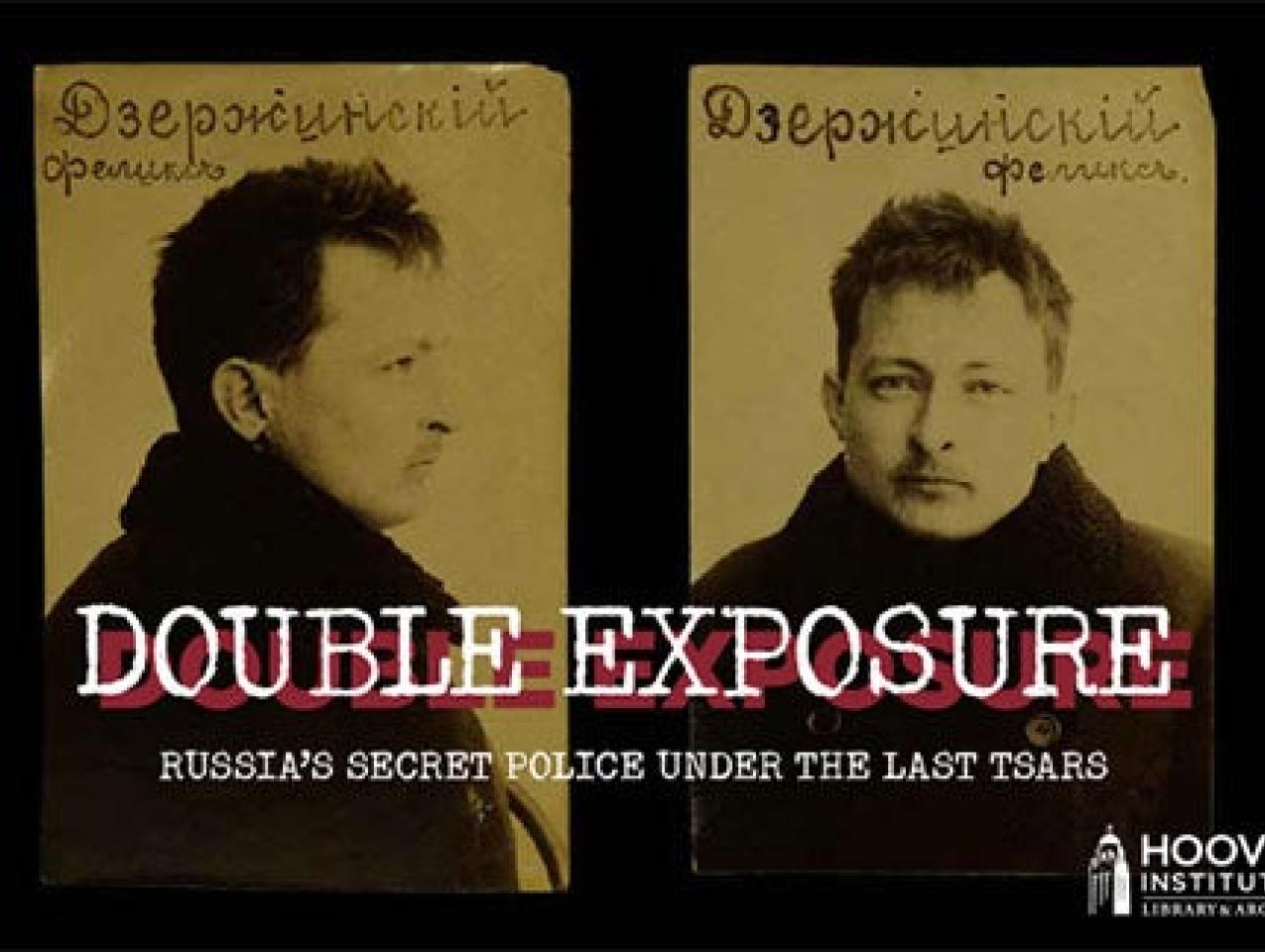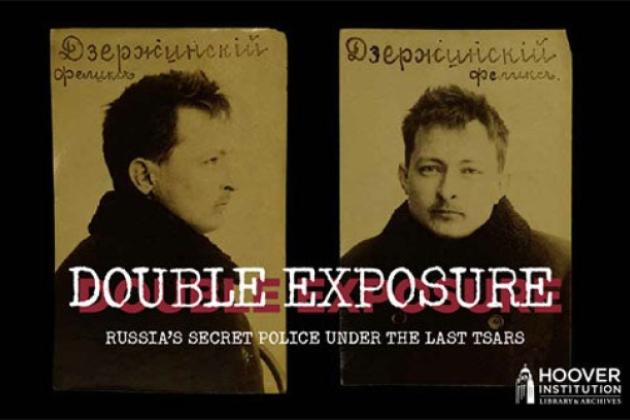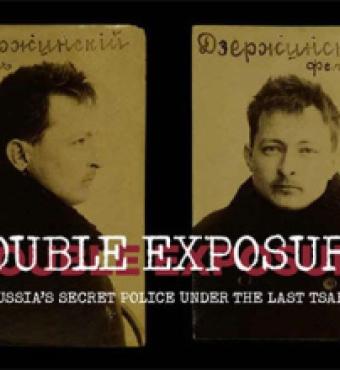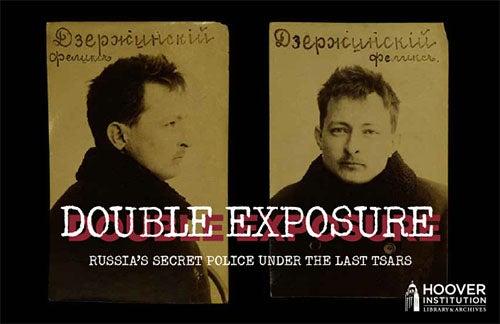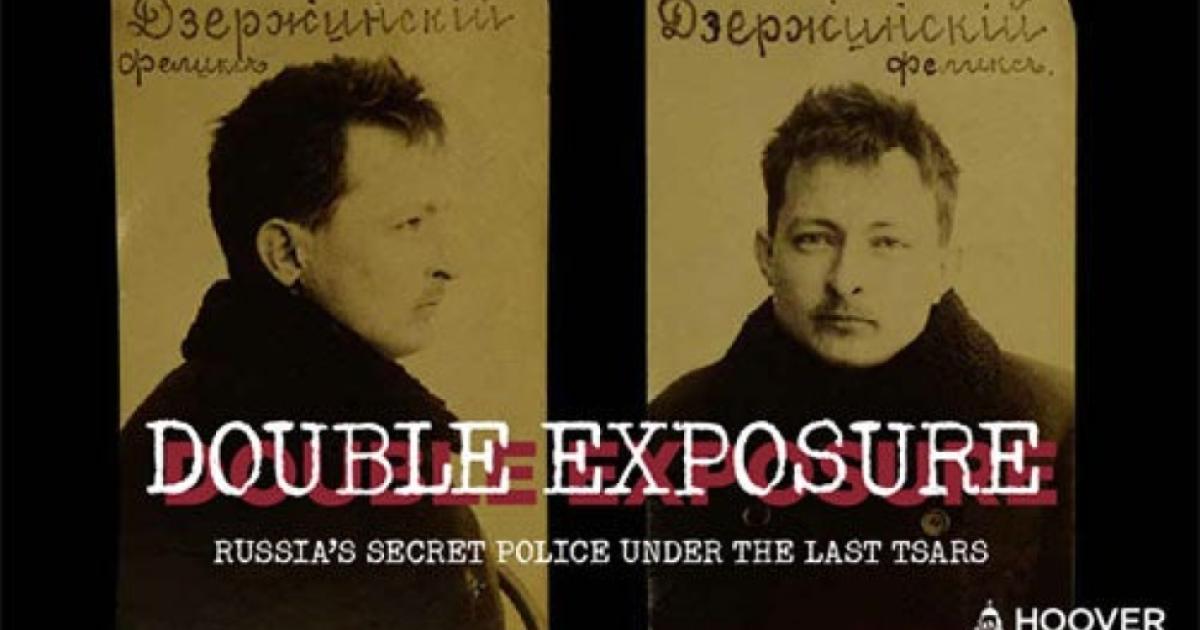A new exhibition, Double Exposure: Russia’s Secret Police under the Last Tsars, is based on one of the most extraordinary collections held in the Hoover Library & Archives: the records of the Paris headquarters of the Russian Imperial secret police, known as the Okhrana. The Okhrana collection, consisting of once-secret files and photographs of many of the most wanted Russian revolutionaries of the early twentieth century, documents the tsarist government's surveillance of its political enemies throughout Europe, including many who would become leading figures of the Soviet regime after 1917—most notably Vladimir Lenin, Leon Trotsky, and Joseph Stalin. Presenting a wide array of documents and artifacts drawn directly from the Okhrana police files and other related collections, Double Exposure traces the antecedents of the methods of surveillance and terrorism that continue to impact the world we live in today.
Double Exposure is the first exhibition to showcase this unique collection—the story of which is itself a tale of deception and intrigue. Once believed to have been burned by the last Russian ambassador to France after the Bolsheviks seized power in 1917, the Okhrana files were in fact smuggled to the Stanford campus in 1926. Fearing for his life lest the Bolsheviks uncover his duplicity, the ambassador who organized the shipment of the files insisted that their existence remain a secret. Not until the ambassador’s death in 1957 was the collection brought to light. The revelation made headline news around the world, attracting the attention of both intelligence agents and scholars of espionage, surveillance, and terrorism.
Revealing the machinations and motivations of both the pursuers and the pursued, Double Exposure displays the wide range of material used by the Okhrana for intelligence gathering: surveillance reports from agents in the field, reports from the Paris office to St. Petersburg headquarters, dispatches, ciphers, correspondence of revolutionaries, and the countless photographs that became the principal tool for identifying surveillance targets. Most mesmerizing are the mug shots of individual radicals—males and females, many of them photographed in both their younger and their older years—as well as studio photographs of individuals unaware that the cameraman would turn the negatives over to the Russian police. Altogether, the records provide a remarkably detailed account of the activities and evolution of the various political parties and groupings that made up the Russian revolutionary movement, and they locate the origins of the modern surveillance state. Visitors to Double Exposure will come away with a new understanding of how, a century before the dawn of the information age, intelligence gathering had become an essential tool used by political actors, both in authority and in opposition.
The exhibition is curated by Bertrand M. Patenaude, Hoover Research Fellow, and designed by Samira Bozorgi, Assistant Archivist for Exhibitions at Hoover Library & Archives.
Double Exposure: Russia’s Secret Police under the Last Tsars opens Thursday, October 29, 2015, and runs through March 12, 2016. The exhibition is open to the public, free of charge, Tuesday–Saturday from 11:00 a.m. to 4:00 p.m. in the Herbert Hoover Memorial Exhibit Pavilion (next to Hoover Tower) on the Stanford University campus. Parking on campus is free on Saturdays. For directions and parking, click here.
